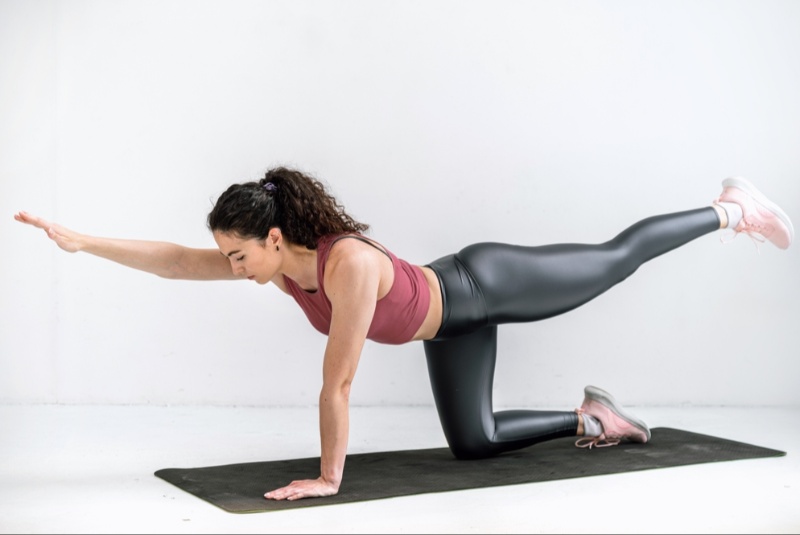Flexibility is a crucial component of overall fitness, yet it's often overlooked in favor of more high-intensity workouts. In this article, we'll explore the importance of flexibility in your fitness routine, examining its numerous benefits and providing practical tips for incorporating flexibility training into your workouts.
1. Enhancing Joint Health and Range of Motion
Preventing Injury and Joint Pain
Flexibility training plays a vital role in maintaining joint health and preventing injuries. By improving flexibility, you reduce the risk of muscle strains, ligament sprains, and other common injuries that can occur during physical activity. Flexible muscles and joints are better able to withstand sudden movements and impacts, reducing the likelihood of overstretching or tearing tissues. Additionally, increased flexibility can alleviate joint pain and stiffness, promoting better mobility and overall comfort during exercise and daily activities.
Improving Range of Motion
Flexibility training also enhances your range of motion, allowing you to move more freely and efficiently. A greater range of motion enables you to perform exercises with proper form and technique, maximizing the effectiveness of your workouts and minimizing the risk of compensation patterns that can lead to imbalances and injuries. Whether you're lifting weights, running, or participating in sports, improved flexibility allows you to achieve optimal movement patterns and reach your full athletic potential.
2. Supporting Muscle Function and Performance
Enhancing Muscle Elasticity
Flexibility training promotes muscle elasticity, which is essential for optimal muscle function and performance. Flexible muscles can lengthen and contract more effectively, generating greater force and power during activities that require strength and explosiveness. This increased muscle elasticity also improves muscle recovery and reduces post-exercise soreness, allowing you to recover more quickly between workouts and perform at your best consistently.
Optimizing Muscle Balance and Coordination
Maintaining balanced flexibility throughout your body is crucial for optimal muscle balance and coordination. Imbalances in flexibility can lead to muscle tightness and weaknesses, disrupting movement patterns and increasing the risk of injury. By incorporating flexibility exercises that target all major muscle groups, you can address imbalances and ensure that your muscles work together synergistically, enhancing overall stability, coordination, and athletic performance.

3. Improving Posture and Alignment
Correcting Muscular Imbalances
Flexibility training can help correct muscular imbalances that contribute to poor posture and alignment. Tight muscles in the chest, hips, and shoulders can pull the body out of alignment, leading to rounded shoulders, an arched lower back, and other postural issues. By stretching tight muscles and strengthening weak ones, you can restore balance to your body and improve your posture, reducing the risk of chronic pain and injury associated with poor alignment.
Promoting Spinal Health
Flexibility exercises that target the spine can also promote spinal health and alleviate back pain. Stretching the muscles surrounding the spine can relieve tension and pressure on the vertebrae, reducing the risk of disc compression and nerve impingement. Improved spinal flexibility also enhances spinal mobility, allowing for smoother and more fluid movements during daily activities and exercise routines.
4. Enhancing Relaxation and Stress Relief
Promoting Mind-Body Connection
Flexibility training provides an opportunity to cultivate mindfulness and relaxation, promoting a deeper connection between the mind and body. Focused stretching exercises encourage you to tune into your body's sensations and cues, fostering a sense of presence and awareness in the present moment. This mindful approach to flexibility training can help reduce stress and anxiety, promoting relaxation and mental clarity.
Releasing Muscle Tension
Stretching can also help release muscle tension and promote relaxation throughout the body. As you engage in gentle stretching movements, you may notice sensations of tension melting away, replaced by feelings of warmth and ease. This release of muscle tension not only relieves physical discomfort but also promotes a sense of calm and well-being, leaving you feeling rejuvenated and refreshed after your flexibility routine.
5. Incorporating Flexibility Training Into Your Fitness Routine
Making Flexibility a Priority
To reap the benefits of flexibility training, it's essential to make it a regular part of your fitness routine. Schedule dedicated flexibility sessions into your weekly workout plan, setting aside time to focus on stretching and mobility exercises. Aim to incorporate a variety of stretching techniques, including static stretches, dynamic stretches, and foam rolling, to target different muscle groups and improve overall flexibility.
Combining Flexibility With Strength and Cardio
Integrate flexibility exercises into your strength training and cardio workouts to maximize efficiency and effectiveness. Perform dynamic stretches as part of your warm-up to prepare your muscles and joints for activity, and include static stretches at the end of your workout to promote relaxation and recovery. By combining flexibility training with strength and cardio exercises, you can create a well-rounded fitness routine that addresses all aspects of physical fitness.
Embracing Flexibility for Optimal Health and Performance
Incorporating flexibility training into your fitness routine is essential for maintaining overall health, preventing injuries, and optimizing athletic performance. By enhancing joint health, supporting muscle function, improving posture, promoting relaxation, and incorporating flexibility exercises into your workouts, you can experience the numerous benefits of flexibility training firsthand. Make flexibility a priority in your fitness journey, and you'll not only feel better physically but also enjoy greater mobility, strength, and resilience in all areas of your life.




